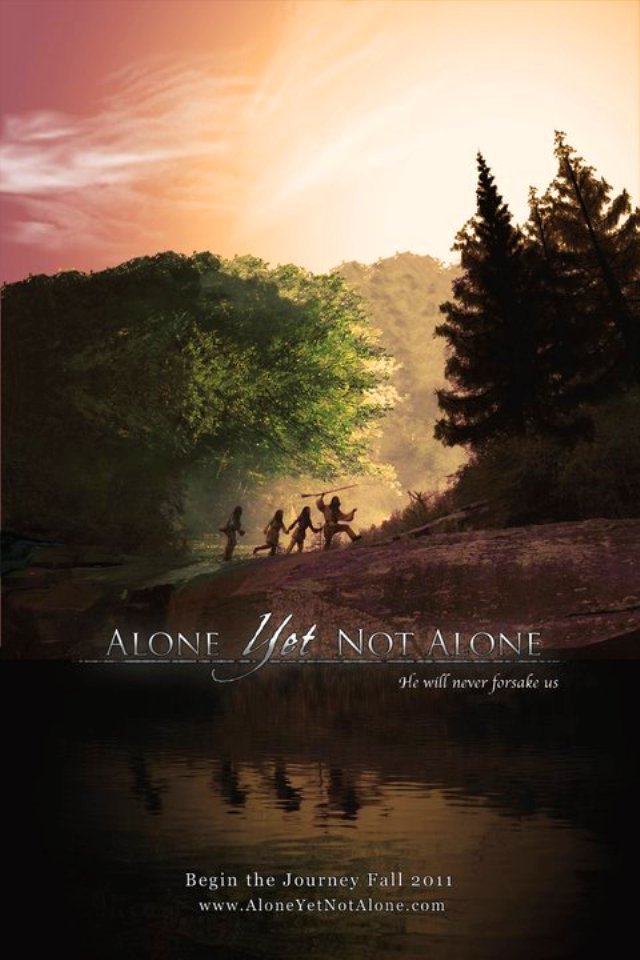HOLLYWOOD FILM SHOWS ‘GAYS’ DO GO STRAIGHT
A-list Actors Depict Michael Glatze’s Remarkable Transformation
By Art Moore
The remarkable story of a prominent gay-rights activist who “found God,” rejected his homosexual lifestyle, married and became a Christian minister is the subject of a newly released, feature-length Hollywood film.
Boasting A-list actors James Franco, Zachary Quinto and Emma Roberts – with a cameo by Darryl Hannah – “I Am Michael” debuted at the Sundance Film Festival in February 2015 but was released for distribution just three weeks ago.
Glatze, in 2007, first told his story through a column published by WND that highlighted the impact WND Vice President David Kupelian’s book, “The Marketing of Evil,” had on him as he went through a period of spiritual searching.
The movie depicts that episode and details the winding road Glatze takes from his old life. After brief relationships with a Mormon church and a Buddhist retreat center, he ends up at a small Bible college in rural Wyoming, where he meets the woman who would become his wife, Rebekah. They settle in the state, where he becomes the pastor of a small church.
Kupelian said Glatze first sought him out in mid-2007 after reading “The Marketing of Evil,” saying it had helped him in his journey away from homosexuality.
“He asked my advice – since he had been very publicly gay as an LGBT leader – on how to publicly ‘come out’ as straight,” Kupelian said.
Kupelian suggested Glatze write a first-person column for WND, accompanied by a news story about his personal transformation.
“We remained friendly over the years,” Kupelian said. “Then in 2015, I got an email from the ‘I Am Michael’ producers asking permission to depict James Franco reading ‘The Marketing of Evil,’ and that’s how I learned of the movie project.”
Kupelian said he remembers immediately asking Michael: “This is Hollywood. What’s to keep them from vilifying you or turning you into an ugly cartoon Christian?”
Michael replied, “Nothing,” except that they had promised him they would tell his story accurately and not make him look bad.
“I think, for the most part, they made good on that promise,” Kupelian said. “I talked to Michael on the phone right after he and Rebekah saw the movie for the first time, when it debuted at Sundance, and he was clearly happy with the way it turned out.”
Its director, Justin Kelly, and Quinto, who plays Glatze’s live-in boyfriend, identify as gay. And the lead, Franco, as Michael, has played other “gay” roles and in interviews has sowed some doubt about his personal life.
Ultimately, the story is told through the lens of a homosexual director who apparently is trying to sort out how a man attracted to men, and who was such a fierce defender of “gay rights,” could become the very thing he expressly once despised: a “fundamentalist” minister.
Clearly, Franco, a talented actor, portrays a vibrant, high-spirited Michael in the first half of the film in contrast to a largely subdued, sober and often angst-ridden man in the second.
In the penultimate scene, Michael, now engaged to Rebekah, pensively calls his old boyfriend, Bennett, out of the blue.
He offends Bennett, declaring he has freed himself from “abnormal” homosexual feelings, but Bennett is heartened by Michael’s closing words.
“I’m not going to sit here and say I know I’ll be this way for the rest of my life,” Michael says. “We’re always changing, evolving; and I’m open to that.”
Bennett replies, smiling, “Then, I guess nothing’s really changed.”
Michael: “Yeah.”
Nevertheless, it seems Kelly is doing his best to present Glatze’s conversion evenhandedly.
The Christian viewer of “I Am Michael” can relate to the moments in which Glatze appears to be touched emotionally and spiritually by God.
Most will want to fast-forward through some of the scenes in the “before” part of Glatze’s life, which, while avoiding nudity, depict passionate kissing and, in one instance, three-way sex.
The screenplay is based on a first-person New York magazine article by a former friend who visited Glatze while he was in Bible school.
The writer of the article, Benoit Denizet-Lewis, concluded: “As I drove back to my hotel that night, I wondered if I would ever hear from Michael again. Might he call me someday to say that he was gay after all, and that his years as an ex-gay were just another pit stop in his lifelong pursuit of truth?
“It’s possible, but I doubt it will happen anytime soon,” Denizet-Lewis wrote.
“For an ex-gay intent on staying that way, there are few safer places in the world than a Bible school in Wyoming.”
In a 2007 interview with WND, Glatze said he became aware of homosexual feelings at about the age of 14 and publicly declared himself “gay” at age 20. After a decade in which his leadership role in the homosexual activist world grew – but alongside it, a mysterious inner conflict – he said he finally was “liberated.”
After becoming editor of Young Gay America magazine at age 22, Glatze received numerous awards and recognition, including the National Role Model Award from the major homosexual-rights organization Equality Forum. Media gravitated toward him, leading to appearances on PBS television and MSNBC and quotes in a cover story in Time magazine called “The Battle Over Gay Teens.”
He produced, with the help of PBS affiliates and Equality Forum, the first major documentary film to address homosexual teen suicide, “Jim In Bold,” which toured the world and received numerous “best in festival” awards. Young Gay America’s photo exhibit, telling the story of young people across North America, toured Europe, Canada and parts of the U.S.
In 2005, Glatze was featured in a panel with Judy Shepard, mother of slain homosexual Matthew Shepard, at the prestigious JFK Jr. Forum at Harvard’s Kennedy School of Government.
‘I am so grateful for Rebekah’
Glatze did some interviews at the time of the Sundance screening of “I am Michael” in 2015 in which he described the process of making and finally viewing the completed film as a “healing experience.”
In the interviews, he appeared secure in his life as a married minister of the gospel, but he was open about an ongoing struggle to sort out what his past life meant, the nature of sexuality and how he should relate now to people in the homosexual community.
He’s been largely silent since then, seeking a break from the rancor of identity politics to focus on being Michael, the pastor married to Rebekah.
WND reported in December 2013, one month after his wedding, that homosexual activists were ridiculing him and his bride via the Web.
In a letter to his critics, Glatze called the month since his Oct. 26, 2013, wedding to Rebekah the “greatest” of his life.
“I am so grateful for Rebekah, for God, for His provision, for my new in-laws, for my family which traveled from far and wide to join in our special day, and for the prayers and support that have flooded our way since October,” he wrote.
In his letter, Glatze said he and Rebekah didn’t want to become “political pawns.”
“I have never called myself an ‘ex-gay,’ though people have called me that,” he wrote. “But, then again, people have called me a lot of things on account of the fact that I left homosexuality a few years back and decided that I felt more comfortable living heterosexually.”
He said that since so many had commented on his wedding, he wanted to make it clear, “I am not here to ‘force my agenda’ or my ‘lifestyle’ on anyone else.
“I am here to live a good, God-honoring life,” he said. “And, as a Christian, I would be a liar if I didn’t tell people who God is, what He has done in my life and how He continues to provide for me in ways that are more numerous than I can count.”
Editors Note: This article was reprinted from WND.com with permission.
Questions or comments? Please write to us here.


 - Content:
- Content: 

 – Content:
– Content: 